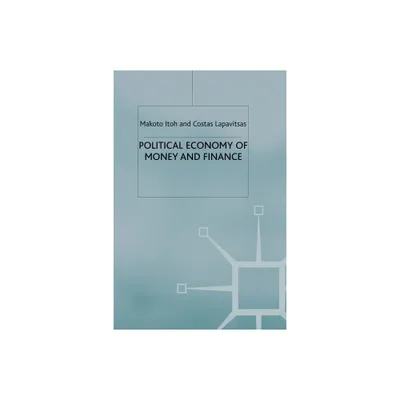Home
the Political Economy of Climate Finance Effectiveness Developing Countries: Carbon Markets, Funds, and State
Loading Inventory...
Barnes and Noble
the Political Economy of Climate Finance Effectiveness Developing Countries: Carbon Markets, Funds, and State
Current price: $83.00


Barnes and Noble
the Political Economy of Climate Finance Effectiveness Developing Countries: Carbon Markets, Funds, and State
Current price: $83.00
Loading Inventory...
Size: Hardcover
*Product Information may vary - to confirm product availability, pricing, and additional information please contact Barnes and Noble
There is ample evidence that engaging developing countries on climate change mitigation would have significant, positive impacts on global climate efforts. There is much debate, however, on the most effective strategy for unlocking these low-cost mitigation opportunities. While the Clean Development Mechanism (CDM) emerged as the main climate finance instrument for engaging developing countries under the Kyoto Protocol, the carbon market approach it embodied would largely be replaced by a new array of climate finance instruments based on climate funds.
In
The Political Economy of Climate Finance Effectiveness in Developing Countries
, Mark Purdon shows that the effectiveness of climate finance instruments to reduce emissions under either strategy has depended on the interaction between prevailing ideas about how to develop a nation's economy, as well as state interests in various economic sectors. Based on multiple field visits over a decade in three countries, the author demonstrates that climate finance instruments have been more effectively implemented when the state treats them as vehicles for addressing priority development issues. Climate finance instruments were more consistently and effectively implemented in Uganda and Moldova than Tanzania, despite differences in state capacity between countries. This pattern held for the CDM, as well as subsequent instruments largely based on climate funds, such as Reducing Emissions from Deforestation and Forest Degradation (REDD+) and other national mitigation actions.
Contributing to broader debates on international climate cooperation, Purdon's findings inform international efforts to support national climate plans and catalyze low-carbon development by emphasizing the importance of domestic politics and the state.
In
The Political Economy of Climate Finance Effectiveness in Developing Countries
, Mark Purdon shows that the effectiveness of climate finance instruments to reduce emissions under either strategy has depended on the interaction between prevailing ideas about how to develop a nation's economy, as well as state interests in various economic sectors. Based on multiple field visits over a decade in three countries, the author demonstrates that climate finance instruments have been more effectively implemented when the state treats them as vehicles for addressing priority development issues. Climate finance instruments were more consistently and effectively implemented in Uganda and Moldova than Tanzania, despite differences in state capacity between countries. This pattern held for the CDM, as well as subsequent instruments largely based on climate funds, such as Reducing Emissions from Deforestation and Forest Degradation (REDD+) and other national mitigation actions.
Contributing to broader debates on international climate cooperation, Purdon's findings inform international efforts to support national climate plans and catalyze low-carbon development by emphasizing the importance of domestic politics and the state.

















